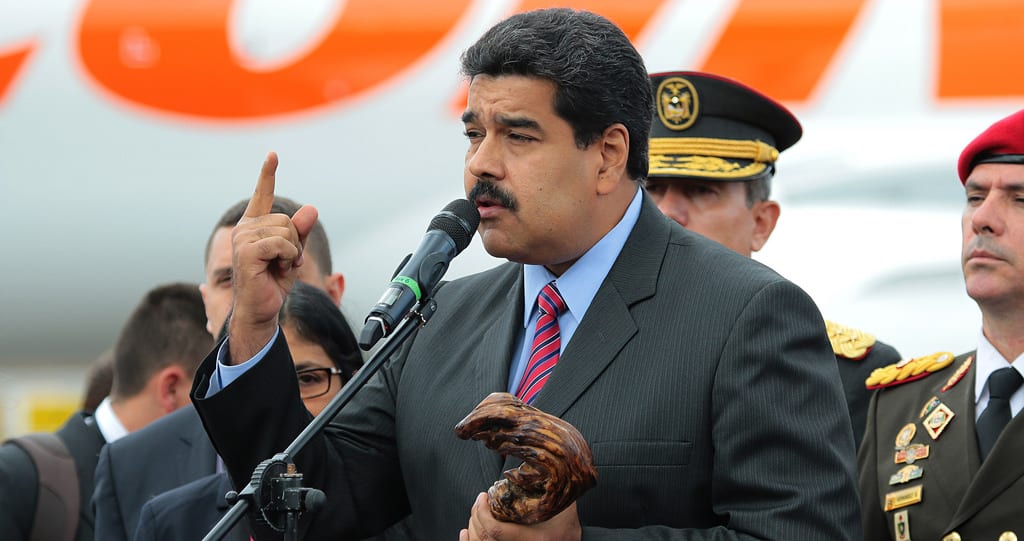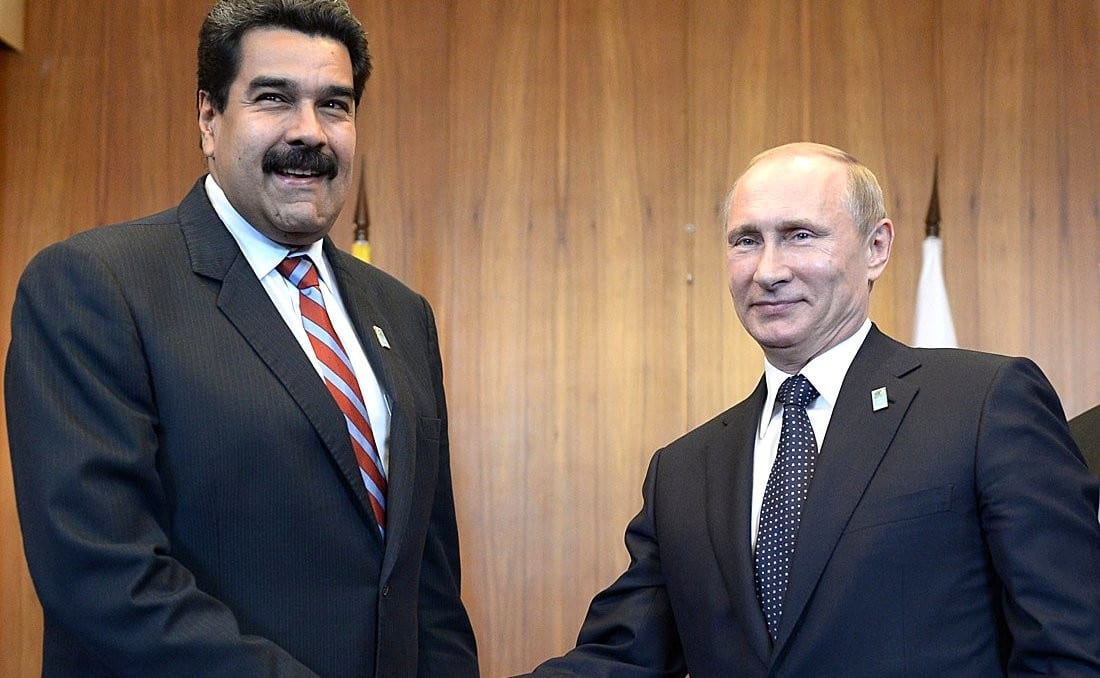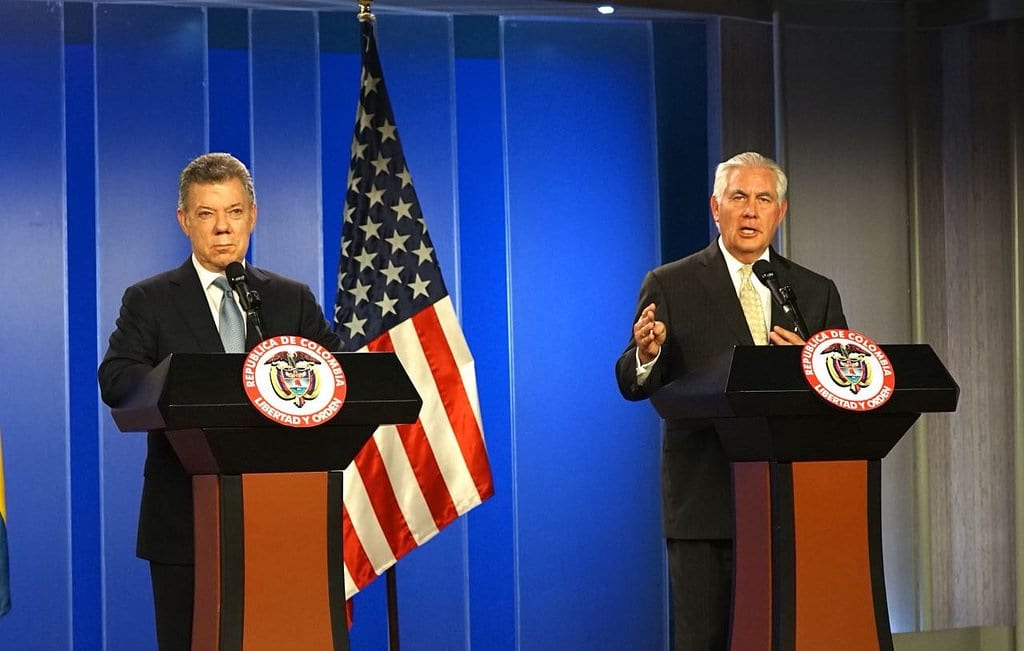Venezuela is going through the worst period in its history. With hyperinflation and a humanitarian crisis ramping up, people are leaving the country by the thousands. However, all these problems and issues are constantly framed by the Government in ways that shape perceptions to support their narrative. The government identifies causes, conveys moral judgments, and endorse remedies using words and images embedded in its culture. Therefore, many people understand those events as foreign sabotage or attacks, blaming other countries for problems that are basically the government’s own mismanagement and corruption. The “Chavismo” -a movement that Hugo Chavez started, and Nicolas Maduro now leads- has built a narrative around historic feelings of inferiority that Latin America has with the United States, which works as a metanarrative that is the glue holding the movement together. Therefore, any foreign initiative or international action must go through a strong filter that the government controls and has used effectively for years.

In this scenario, economic sanctions have been considered more and more in the last year. U.S. representatives, including President Trump, have said that all options are on the table and sanctions on Venezuela´s oil industry are being considered. These sanctions would come as a response to Venezuela´s government undemocratic behavior and the documented violation of human rights. In fact, the U.S. government has already put sanctions on individual representatives from the Venezuelan government since 2015. However, considering that oil represents 95% of the local income, sanctions on the oil industry would potentially affect the whole population.
Considering this context, U.S. Sanctions would perfectly fit Chavismo’s narrative. Although these sanctions are thought from the U.S. perspective as actions that will cause economic restrictions and provoke a political change, it could actually entrench the government. For instance, when Barack Obama first signed the Executive Order with the first list of sanctions in 2015, even though these were targeted to individual officials, Maduro´s regime framed it as an attack and part of the economic sabotage they have been warning about. In fact, Maduro’s popularity went up, and most of the region rejected the sanctions and called to negotiate.
Although the U.S. government tried to frame it as actions speaking on behalf of the people who want a real democracy, they ignored the logic of narratives and master narratives: it is not the actions but how people perceive those actions what shapes PD results. Before taking this sensitive action, the U.S. must carefully think how the story will go down. Therefore, understanding the media ecology that audiences in Venezuela and the region experience it is a critical step to control the outcome.
Regional perspective
Governments in countries such as Colombia, Chile, Brazil, Argentina, and others are very cautious when it comes to sanctions with this impact, and they rarely fully support them. On the other hand, Venezuela’s regime can connect with foreign audiences framing these sanctions through comparisons with past U.S. interventions in countries such as Chile or Cuba, which left a powerful anti-American image in the region.
Economic interests
Another storyline that is entrenched in Venezuela`s political debate is that the U.S. government wants to control the local oil industry. Venezuela, with the biggest proven oil natural reserves in the world, has built its economy around the profits of selling oil throughout the years, and now more than ever. Therefore, this industry is an integral part of any political discourse.
Then, all economic measures that the U.S. takes against Venezuela will bring back this narrative about their plan to control Venezuela’s oil industry. And when U.S. sanctions escalate to affect the oil industry itself, the government is going to exploit this cultural background for political support.
China and Russia
Moreover, the U.S. could not only be entrenching a dictator and nurturing an underlying anti-U.S. sentiment with these sanctions but also could be pushing Venezuela into the hands of Russia and China. Although Venezuela should be a strategic geopolitical ally of the U.S., economic restrictions on an already decaying economy only make them look for agreements in the East. Both countries have important economic agreements with Venezuela, and their influence is getting more powerful as Venezuela becomes more isolated with time. In fact, Rosneft already has an influence on Venezuela´s most important international asset, American refiner CITGO which has its headquarters in Houston.

A strategic approach
Although banning Venezuela´s oil would certainly exert an economic shock that could potentially lead to a political change, the risks of producing the contrary effect fueling the regime´s narrative and nurturing an anti-American sentiment seem very high. After all, Venezuela´s economy is already imploding without these sanctions; thus, maybe the U.S. would be only giving them their excuse.
A more effective approach would be working with other Latin American countries to progressively constrain Maduro´s regime financial options, offer guarantees to key actors inside the government in exchange of quitting power, and prepare humanitarian assistance for when the transition starts.
The U.S. government needs to execute these actions together with countries such as Brazil, Chile, Argentina, Ecuador, and even the European Union. These actions in a bloc -including socialist countries- would legitimate any decision in the eyes of Venezuelans who still believe in their government’s narrative. This way, the U.S. would avoid their ideological trap proposing a regional approach because it would not be the U.S. against Latin America anymore, it would be the continent against Venezuela’s regime.

Caveat: The opinions expressed in this blog are those of the author. They do not necessarily express the views of either The Institute of Public Diplomacy and Global Communication or The George Washington University.

I love how the solution always boils down to “work together” or some other cliche like that. Public diplomacy isn’t so hard!